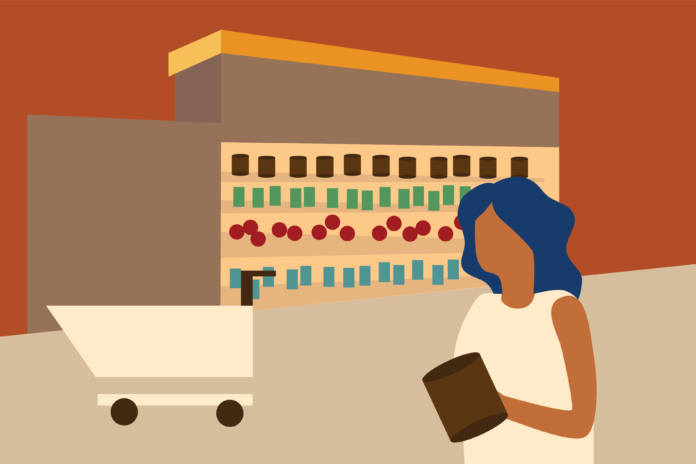Yolo County recognizes college students’ needs
At UC Davis, 44% of students face food insecurity, according to survey data collected by the Chancellor’s Student Food Security Task Force in May 2018. Organizations such as Yolo Food Bank and the ASUCD Pantry offer to distribute necessities while students study for their college degree.
Yolo Food Bank has been serving nutritional needs of Yolo County residents, including UC Davis students. Located in Woodland, they organize and coordinate on a massive scale.
Joy Cohan, the director of philanthropic engagement at Yolo Food Bank, said that the food bank has been collaborating with UC Davis students in many ways, especially to create an equitable food system to feed all county residents and students.
“There were existing needs before the pandemic,” Cohan said. “The challenges of the pandemic showed a spotlight of what people’s needs were. That opened the door to provide robust services.”
Yolo Food Bank has already been making efforts with UC Davis organizations like Aggie Compass and Solano Park Apartments. They are starting food distribution at the Quad in the next few months.
“The genuine interest in being a good neighbor in supporting food insecurity has been heartening,” Cohan said.
The ASUCD Pantry, a student-run organization, supports all UC Davis students with food, toiletries and menstrual products. Unit Director Jason Kwan discussed the importance of the food pantry and the urge to help students thrive at Davis. However, he considers the service to be a short-term solution.
“People can grab food everyday, and I’m glad it helps them,” Kwan said. “But food insecurity is more than just having the food; it’s about having access to resources.”
Kwan detailed that The Pantry works with iCompass, saying that this center could be a long-term solution to solving issues like food insecurity. iCompass assists students with enrolling in CalFresh and informs them about picking up groceries and basic needs. Kwan discussed his hope to incorporate a range of cultural foods during his time as a director.
“We are a wide and diverse community, and I feel that we need to start moving toward being able to have more culturally relevant foods so everyone is comfortable with the foods they get at the pantry,” Kwan said.
The Pantry director emphasized that they no longer use a point system; a student can take 40 items per order. Students can order in advance on the website. They could also scan a QR code in person to schedule a time to walk in or pre-order a food bag.
“People think they are taking away from others if they use The Pantry but that’s not the case,” Kwan said. “The more students use The Pantry, the more money we get and the more students we can help out.”
He encouraged UC Davis students to visit The Pantry, located in MU 167 between the market and the Aggie Compass.
Madison Rasmussen, a fourth-year student majoring in sustainable agriculture and food systems, went to The Pantry daily during the 2019 school year when school was in person. She visited The Pantry for the first time during the 2021 fall quarter on the first day of classes. Rasmussen grabbed almonds and said that The Pantry has snacks available as well.
She also utilizes the Freedge, a public refrigerator funded by the Green Initiative Fund that allows community members to share food with each other.
Rasmussen recognizes that food insecurity affects many students.
“A lot of people on campus don’t know how to cook,” Rasmussen said. “Some students will skip meals and not eat three meals every day. I think that a lot of people choose junk food because it’s quicker to eat, and you get a lot more calories. It’s not as good for you and has more preservatives.”
Written by: Ellie Lee — city@theaggie.org




